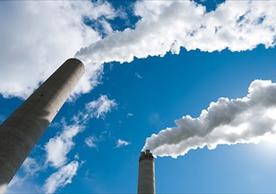
As an undergraduate, you are allowed to take four course credits in professional schools (see K. Special Arrangements). This does not include Professional School courses with an undergraduate course number. If you’re considering applying to YSE’s 5th-Year Master’s Degree Program, you should explore taking YSE classes as an undergraduate.
Some YSE courses offer preregistration, many do not. Note that YSE preregistration deadlines are different than Yale College deadlines. Below are two energy-related courses offered this spring to consider, one requires an application.
Renewable Energy Project Finance (ENV 635)
This course is highly recommended by EVST alumni interested in energy finance.
This course is intended to be a practicum, exposing students to real-world tools of the trade as well as the theory underlying them. In place of a textbook, students are provided with approximately 400 pages of actual project documents used for a U.S. wind energy project constructed relatively recently. Through weekly homework assignments, students develop the skills necessary to construct a detailed financial model, largely comparable to what would be used by an investment firm, project developer, or independent power producer. Modeling skills include sizing debt capacity, sensitivity analysis, stochastic forecasting, taxes, and the creation of financial statements. Lectures also provide an introduction to risk management, energy market dynamics, alternative contractual structures, financial structuring, and the core engineering and risks inherent in the most common renewable energy technologies. This course is entirely online. While cross-listed at the School of Management, it follow the YSE academic calendar. Admission requires an application consisting of a one-paragraph statement of interest.
This course will likely be oversubscribed based upon current levels of student interest in the course. Therefore, as an enrollment requirement, students are asked to submit a one-paragraph Statement of Interest.
- The application is available on Google Forms and can be submitted here:
- Application submissions are due by January 11.
- Students will be informed of their admission by January 18.
- The course will maintain a waitlist until the start of the semester in the event that some students granted admission decide not to enroll.
Instructor: Daniel Gross
ENV 622 Decarbonization Pathways to Limit Climate Change (ENV 622)
New YSE course with no preregistration or enrollment cap.
Course description: Pollution from fossil fuels, deforestation, and other causes have already resulted in more than 1˚C of warming above preindustrial levels, radically altering our climate. The Intergovernmental Panel on Climate Change found that the world will face severe climate impacts even with a 1.5˚C temperature rise. And without increased ambition in countries’ climate commitments and climate actions, we can anticipate at least 3˚C of warming by the end of the century (UNEP 2019), leading to an unrecognizable planet. To achieve the goals of the Paris Agreement, global emissions will need to be halved by 2030 and reach net zero by mid-century. As we head into this decisive decade, we need to understand the magnitude of the climate challenge and which mitigation pathways are available to transition to a net-zero future and limit the most dangerous climate impacts. Accordingly, this course is devoted to understanding the scale of the climate problem and solution sets that would set us on a pathway to achieve net-zero emissions. We start by examining emissions trends and impacts, as well as the necessary scale of emissions cuts consistent with achieving the goals of the Paris Agreement. We then turn our attention to strengthening our global response, with an investigation into countries’ commitments, known as nationally determined contributions (NDCs), long-term strategies, and net-zero targets. This is particularly relevant this coming year, as countries are preparing these commitments in advance of the 26th Conference of the Parties, to be held in November 2021. The last portion of the class is dedicated to informing the design of climate solutions, as we have a narrow window of time to steer action. We first explore theoretical frameworks for shaping our interventions and then examine the role of different sectors and solutions sets in achieving net-zero greenhouse gas emissions.
Instructor: Kelly Levin
Questions about this course? Contact Kelly Levin.
